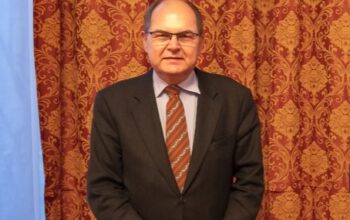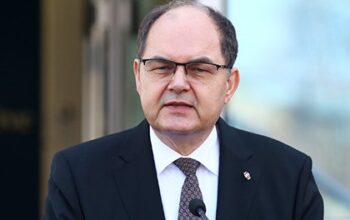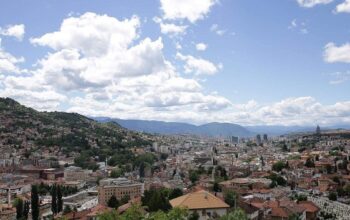In his February 18, 2012, FENA interview, Ambassador Inzko objects to criticism of the Court of BiH and the Prosecutor’s Office by “some [Republika Srpska] representatives” and states that he:
would like to remind the RS authorities of their duty to respect and observe the independence of the judiciary. The judiciary must be able to decide matters before them without improper influences, pressures or threats.
Ambassador Inzko’s principle is sound, but his admonition is misdirected. It is the Office of the High Representative that has itself persisted in the flagrant, continuing subversion of the independence of the judiciary in BiH. Ambassador Inzko and his predecessor High Representatives have displaced the lawful authority of the judiciary and have directly and indirectly dictated the outcome of court proceedings. They have expressly overruled court decisions with which they disagreed and have prohibited all courts in BiH from even considering whether the actions of the High Representative comply with the law – even the basic law protecting fundamental human rights. They have exerted undue influence over the appointment of judges in BiH and have asserted the authority to dismiss unilaterally and without a hearing any judge or other official in BiH. There is credible evidence of ex parte communications with judges and tacit understandings with them. In all areas of governance in BiH in which the High Representative’s orders purport to apply (and this includes most areas of significance), the High Representative has completely subverted the independence of the courts.
The undue influence of the High Representative over the judiciary in BiH prevents the exercise of constitutional government in BiH and imposes a barrier to the accession of BiH to the European Union. Yet the High Representative consistently ignores his own violations of the principle of judicial independence. In a series of subsequent articles, the BiH Dayton Project will describe some of the most blatant examples of the High Representatives’ subversion of the judiciary in BiH. Ambassador Inzko’s February 18 interview with FENA, however, provides a recent example.
In the interview he continues his direct and illegal interference with the ongoing war crimes investigations of the Dobrovoljacka Street ambush, interference that included intervention in the recent extradition proceedings in London and Vienna of Mssrs Divjak and Ganic. Mischaracterizing decisions on the Dobrovoljacka Street case in both the ICTY and the domestic courts of Austria and the UK, Ambassador Inzko, with little subtlety, effectively notifies the BiH prosecutor and Court as to how they are to treat matters that are now or soon will be before them.
The basic rules that are required to preserve judicial independence must be applicable to the High Representative as well asothers. The FENA interview obviously violates them. The international community, since the signing of the Dayton Accords, has asserted that an independent judiciary is a foundation stone of democracy in Bosnia-Herzegovina. It is contradictory and ironic that the most important obstacle to judicial independence in BiH comes from the international community itself in the person of the High Representative.


